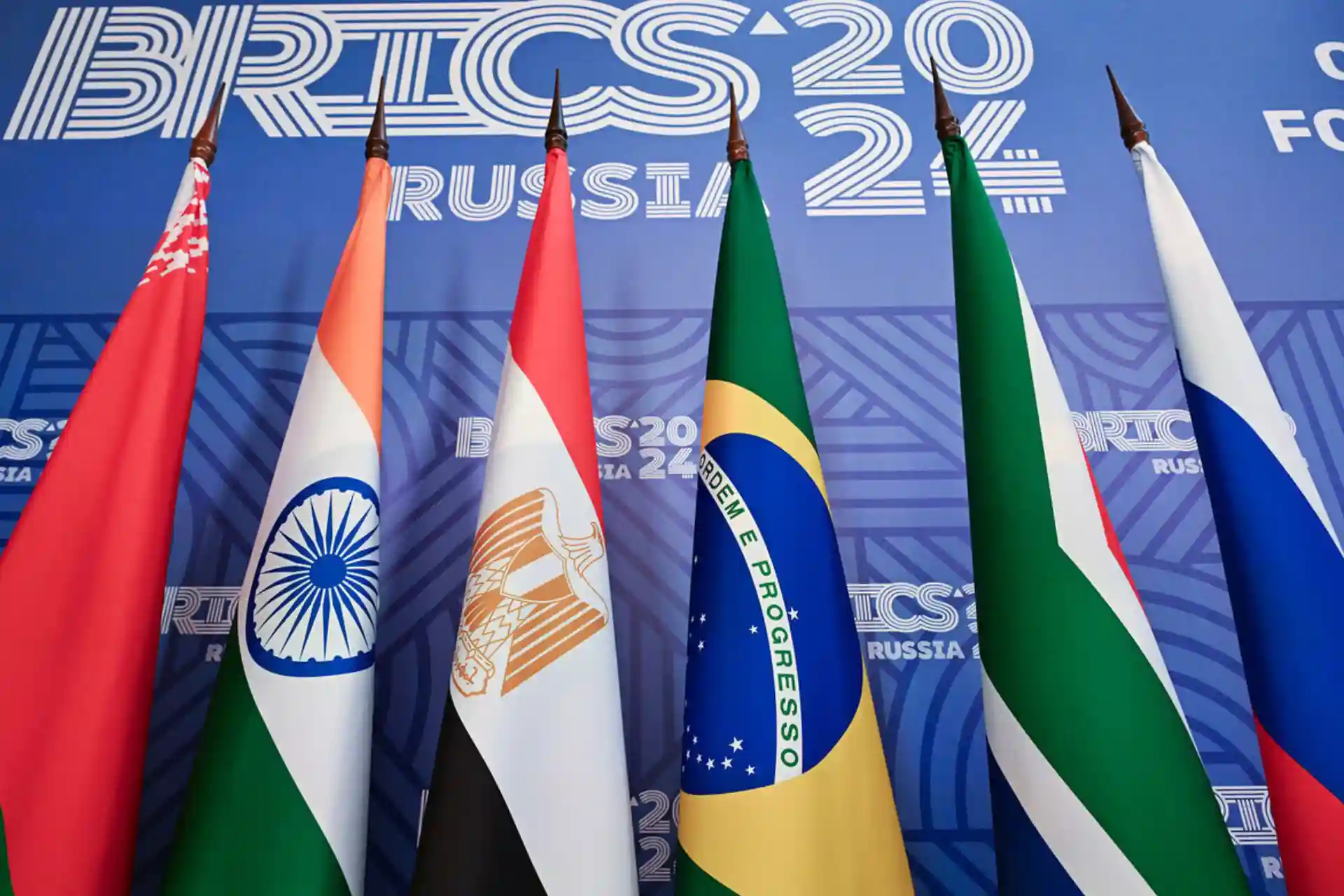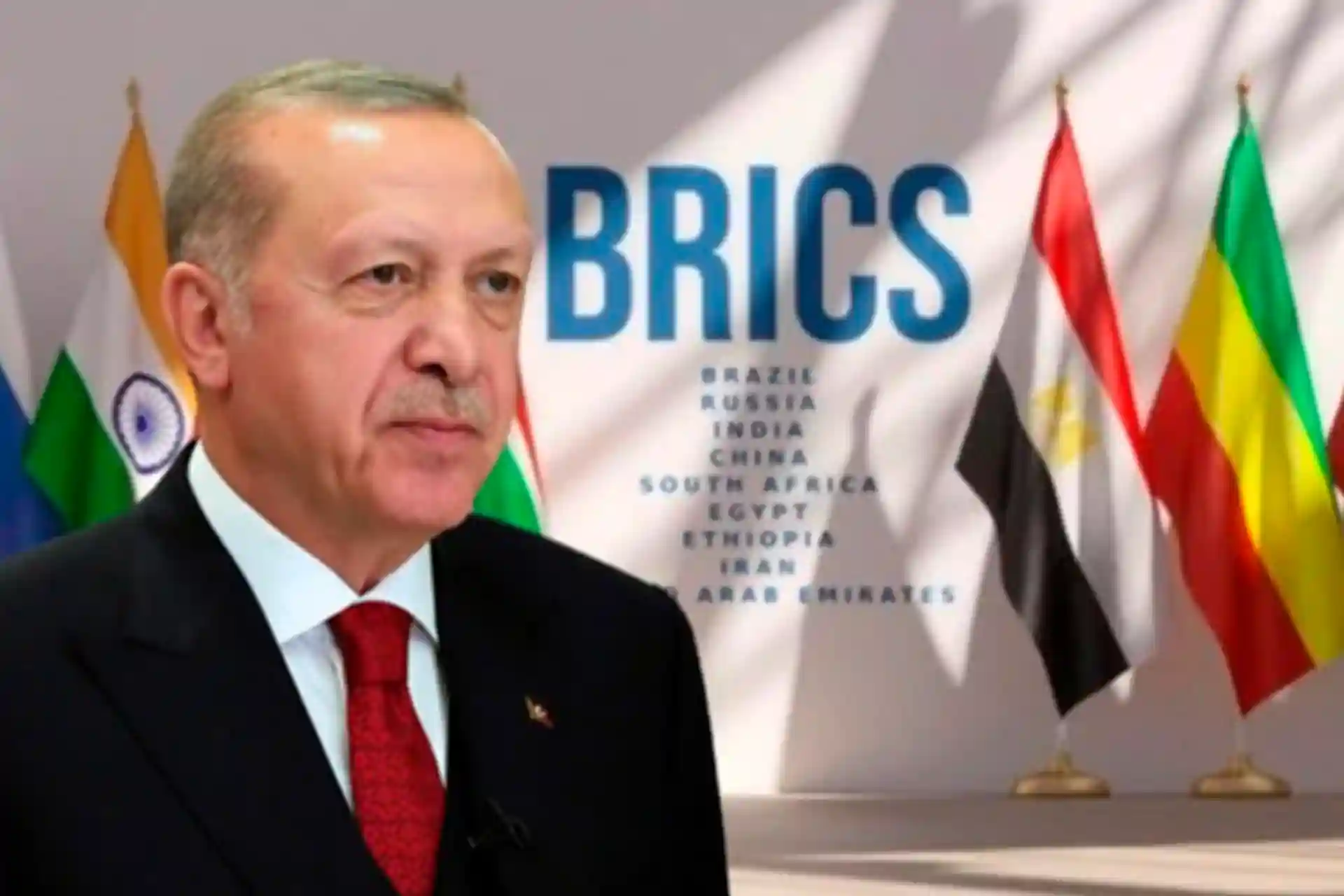What kind of organization is BRICS, is its expansion a threat to the USA?
BRICS is an informal group consisting of Brazil, Russia, India, China and South Africa, as well as five new members, which seeks to increase the influence of developing economies in the global order. So, what is the importance, history and tasks of BRICS? Will the BRICS currency replace the dollar? What awaits this organization in the future - an analytical article.
BRICS is an informal group consisting of Brazil, Russia, India, China and South Africa, as well as five new members, which seeks to increase the influence of developing economies in the global order. BRICS, which was established in 2009, is based on the fact that international institutions are mismanaged by Western countries and do not provide services to developing countries. Coordination of economic and diplomatic policies of bloc members, establishment of new financial institutions and reduction of dependence on the US dollar are the main goals of the organization.
However, BRICS has internal disagreements over a number of issues, including relations with the US and Russia's invasion of Ukraine. Some analysts warn that the bloc could weaken the Western-led international order, while others say its plans to create its own currency and develop an alternative system to existing institutions are a pipe dream.
Importance of BRICS
This coalition is not an official organization, but a loose association of non-Western economies coordinating their economic and diplomatic efforts around a common goal. The BRICS countries are seeking to create an alternative system to the dominance of the Western perspective in major multilateral groups such as the World Bank, the Group of Seven (G7) and the UN Security Council.
The expansion of the group in 2024 will have a number of geopolitical consequences. This means growing economic and demographic potential: the ten BRICS countries now account for more than a quarter of the world's economy and almost half of the world's population. The group is trying to influence the wars in the Gaza Strip and Ukraine, the formation of the global economic system, competition between China and the West, and the transition to clean energy.
But the expansion of membership has also created new challenges, including opposition from Western countries and growing discord within the bloc. According to experts, how BRICS members resolve these conflicts will determine whether the group can become a more unified voice on the international stage.
History of BRICS
The term was originally coined in 2001 by Goldman Sachs economist Jim O'Neill, who noted in his research that the growth of the then "BRICS" countries (Brazil, Russia, India and China) could rival the G7 rich economies.
Russia hosted the first official BRIC summit in 2009. South Africa joined a year later at China's invitation, forming a five-nation group that lasted more than a decade.
The next wave of expansion took place at the 2023 BRICS summit, which extended invitations to six new countries - Argentina, Egypt, Ethiopia, Iran, Saudi Arabia and the United Arab Emirates (UAE). All countries except Argentina accepted the offer. The newly elected president of Argentina, Javier Miley, has promised that the country will be "taken under the skirts" of the West and will not "enter into an alliance with the communists". Saudi Arabia has reportedly accepted membership, but is delaying formal accession without giving a detailed explanation.
What is the mission of BRICS?
BRICS heads of state meet annually. Each country assumes a one-year presidency to set priorities and host the summit. The bloc relies on consensus-based decision-making and is largely informal: it has no well-defined constitution, secretariat or common funds.
BRICS seeks to create a united front of emerging economies' perspectives in multilateral institutions. The group aims to reform existing institutions, such as the expansion of the UN Security Council, and to form negotiating blocs within these institutions.
For example, many BRICS countries opposed the UN condemnation of Russia's war in Ukraine and sought to form common positions on Iran's nuclear program and the conflicts in Afghanistan, Gaza, Libya and Syria.
The 2008 global crisis hit the BRICS countries hard, prompting the group to focus on economic cooperation on issues such as tariff policies, restrictions on exports of critical resources, and investments. The bloc's annual FDI inflows have more than quadrupled between 2001 and 2021, though they have slowed in recent years.
Increasingly frustrated by the dominance of the dollar in global transactions, which exposes them to Western sanctions, BRICS leaders have long advocated increased trade in local currencies or even de-dollarization in favor of the group's potential common currency.
The group's New Development Bank (NDB) and Conditional Reserve Agreement (CRA) are intended to replace the World Bank and the International Monetary Fund (IMF), respectively. BRICS members hope that alternative credit institutions will strengthen South-South cooperation and reduce dependence on traditional sources of financing.
How effective have BRICS financial institutions been?
The IMF and IMF were developed as an alternative to the Bretton Woods Agreement, the main global financial system established by the leading industrialized countries after World War II. Many countries in the Global South believe that these institutions, especially the World Bank and the IMF, are failing to meet the needs of poor countries, particularly in areas such as climate finance.
"This system was created by rich countries to benefit rich countries," said UN Secretary General Antonio Guterres. He said that "almost no African countries sat at the negotiating table of the Bretton Woods Agreement."
Both institutes work differently. The IMF, a common fund between BRICS central banks that helps during currency crises, is limited to BRICS countries, and in 2021, the EDB began financing private projects in other emerging market countries.
Nevertheless, the IMF is five times smaller than the World Bank, and experts doubt that it can completely replace it.
Will the BRICS currency replace the dollar?
For more than a decade, the BRICS countries have been trying to reduce the dominance of the US dollar in international trade: primarily by increasing the use of their own currencies in trade, especially the Chinese renminbi. There is also a push to introduce a new currency within the BRICS framework, the main supporter of which is Brazilian President Luis Inacio Lula da Silva. Other monetary proposals put forward at the 2023 summit include the creation of a new cryptocurrency or the use of a combined basket of BRICS currencies.
According to some experts, such ambitions are difficult to achieve. The BRICS currency requires major political agreements, including banking union, fiscal union and general macroeconomic convergence.
The dollar, long the world's main reserve currency, is still used in more than 80 percent of global trade, and many experts say the new BRICS reserve currency is not stable or reliable enough for global transactions.
What distinguishes BRICS members?
In addition to difficulties in the implementation of the economic strategies of the BRICS countries, there are also internal conflicts between the member states. Relations between China and India have been strained by a decades-old border dispute, as well as competition for economic and geopolitical leadership of the Global South. The group already had problems making decisions; At a meeting of foreign ministers in New York in September, leaders tried to propose a model that would simplify the process of adding new members to the UN Security Council, but the group failed to reach an agreement.
Russia's invasion of Ukraine has also deepened divisions. This led to Western-led sanctions and diplomatic pressure to freeze trade with Russia. Most BRICS members chose a middle path, while others ignored Western sanctions. Some analysts say that sanctions on oil and other essential products are actually bringing the BRICS countries closer together.
At the same time, economic and political instability in member countries has undermined confidence in BRICS efforts. Over the past decade, Brazil and South Africa have faced years of recession, chronic corruption, and crumbling infrastructure. Other major dividing lines include conflicts between democrats and authoritarians, and between Saudi Arabia and Iran, Egypt and Ethiopia.
Why is BRICS expanding?
The drive to expand membership is another dividing line in the bloc. China and Russia favored expansion, while Brazil and India worried it would dilute their influence.
The accession of Egypt and Ethiopia is beneficial for the African continent. Egypt also has close trade ties with China and India and political ties with Russia. China has long been attracted to Ethiopia, sub-Saharan Africa's third-largest economy: Beijing has invested billions of dollars in the country as part of its One Place, One Road initiative.
The addition of Saudi Arabia and the UAE brings the Arab world's two largest economies and the world's second and eighth largest oil producers into the group. They also play a mediating role in other regions: Saudi Arabia is negotiating peace for the civil war in Sudan and the war in Ukraine. The UAE is holding India-Pakistan stability talks, and both countries are considering normalizing relations with Israel for the first time in decades.
But the entry of new members also raises questions about relations with the West. Iran and Russia are fierce rivals to US influence, while China has entered economic and geopolitical competition with the US.
As former Iranian president Ebrahim Raisi told his Chinese counterpart Xi Jinping, "Iran's membership in the bloc is to oppose American authoritarianism." However, Brazil, India and South Africa have warmer relations with the US, and Saudi Arabia and the UAE are its main security partners.
How did the Western countries react to this?
Western countries paid little attention to the group's growth. White House National Security Adviser Jake Sullivan said that Washington does not see BRICS as a geopolitical rival. Other political analysts point out that the aspirations of the BRICS countries are exaggerated, and that the internal problems of the group's members have a negative impact on its strengthening and effective cooperation.
Nevertheless, some European politicians warn that anti-Western sentiment is growing. They see this expansion as the result of Western indifference to the needs of low-income countries.
"The accusation that the West is arrogant about the needs of the Global South is serious. As BRICS' interests are focused on changing global finance, trade and other standard-setting arrangements, it cannot be answered by proposing 'values-based cooperation' and 'rules-based' multilateralism," writes Günter Meihold, a senior fellow at the German Institute for International and Security Affairs.
What awaits BRICS in the future?
Russia holds the BRICS presidency this year and plans to focus on building a "just world order" and transitioning to local currencies and payment systems at a summit in Kazan in October. The Russian-led BRICS meeting comes as the Kremlin continues its third year of war in Ukraine; analysts expect Putin to use the presidency to show that Russia is not isolated under Western pressure.
Despite Russia's push to steer the bloc in an anti-Western direction, members like Brazil and India, which have closer ties to the US, are likely to resist. "No one in this bloc wants to put themselves in a conflict with the West and the United States and put themselves in Russia's situation," Boris Bondarev, a former Russian diplomat at the UN, told The Washington Post.
Other priorities for 2024 include admitting new members and creating a new category of partner countries in addition to full BRICS membership. At the same time, BRICS is already planning the next new growth.



